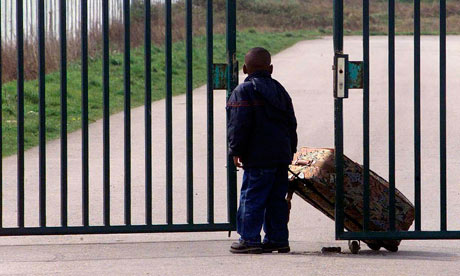 The government must ensure asylum seekers receive good-quality legal representation before more families suffer
The government must ensure asylum seekers receive good-quality legal representation before more families suffer 
My organisation, Refugee and Migrant Justice, is the largest specialist provider of legal representation to asylum seekers and the victims of trafficking. We are facing possible closure because of the last government's mistakes.
The new government has an opportunity to make Britain's asylum system fairer, faster and more humane. Labour policies to clear backlogs, tighten borders, and appear "tough" have resulted in an expensive, inefficient and inhumane system in which children are routinely locked up and many genuine cases turned down, only to be accepted at appeal – a costly process wasting money for the taxpayer.
The new administration's decisions to end the detention of children and review asylum and legal aid are potentially positive. But, despite this good start, decisions being taken on legal aid now may define this as the moment things went horribly wrong.
Good-quality legal representation is the key to speed and fairness and offers good value for money, but the last government's funding rules are squeezing this out.
A recent pilot project (PDF) in Solihull gave every asylum seeker access to a lawyer, who represented them when the Home Office decided their case. The pilot led to more asylum seekers being granted asylum early, and more cases being concluded within six months. Independent evaluation suggested significant overall savings because less money was being wasted downstream.
Access to quality legal representation early on is also crucial to reducing the number of families being detained and faced with forcible removal.
But despite the importance of good quality legal representation, legal aid no longer supports it. Most cases now receive a fixed fee, irrespective of time spent or quality of work. Short legal advice work, which cannot resolve cases, is paid the same as more time-consuming work to prepare witness statements, which are essential to good asylum decisions. Short cases, which are now paid over twice as much as before the changes, are now common, while witness statements are a rarity.
But the real killer is the Legal Services Commission's decision to pay for work only once the Home Office or the tribunals have reached a decision – which can take up to two years. Charities such as RMJ take on longer, more complex cases, so are badly hit. They don't have large reserves and can't get bank loans to pick up the government's debt. Many others are suffering too, and some have already gone under. The Law Centres Federation recently warned that many law centres "struggle with late payment".
Unfortunately, the new government has been advised to stick to the last government's rules on legal aid because they underpin a procurement exercise started but not completed by the previous administration. This exercise would lock in the current payment system for a further three years and ringfence it from the legal aid review. It will also prevent the "early legal advice process" – piloted so successfully in Solihull – from being adopted nationwide.
It's time for this government to break free from the last government's mistakes. If we are forced to close because of these delays in payments, more than 10,000 clients, including 900 unaccompanied children who receive free legal advice and representation from us, will be cut adrift. It's not only RMJ and other providers like us, but the whole asylum system that is being put at risk.
Caroline Slocock is the chief executive of Refugee and Migrant Justice




